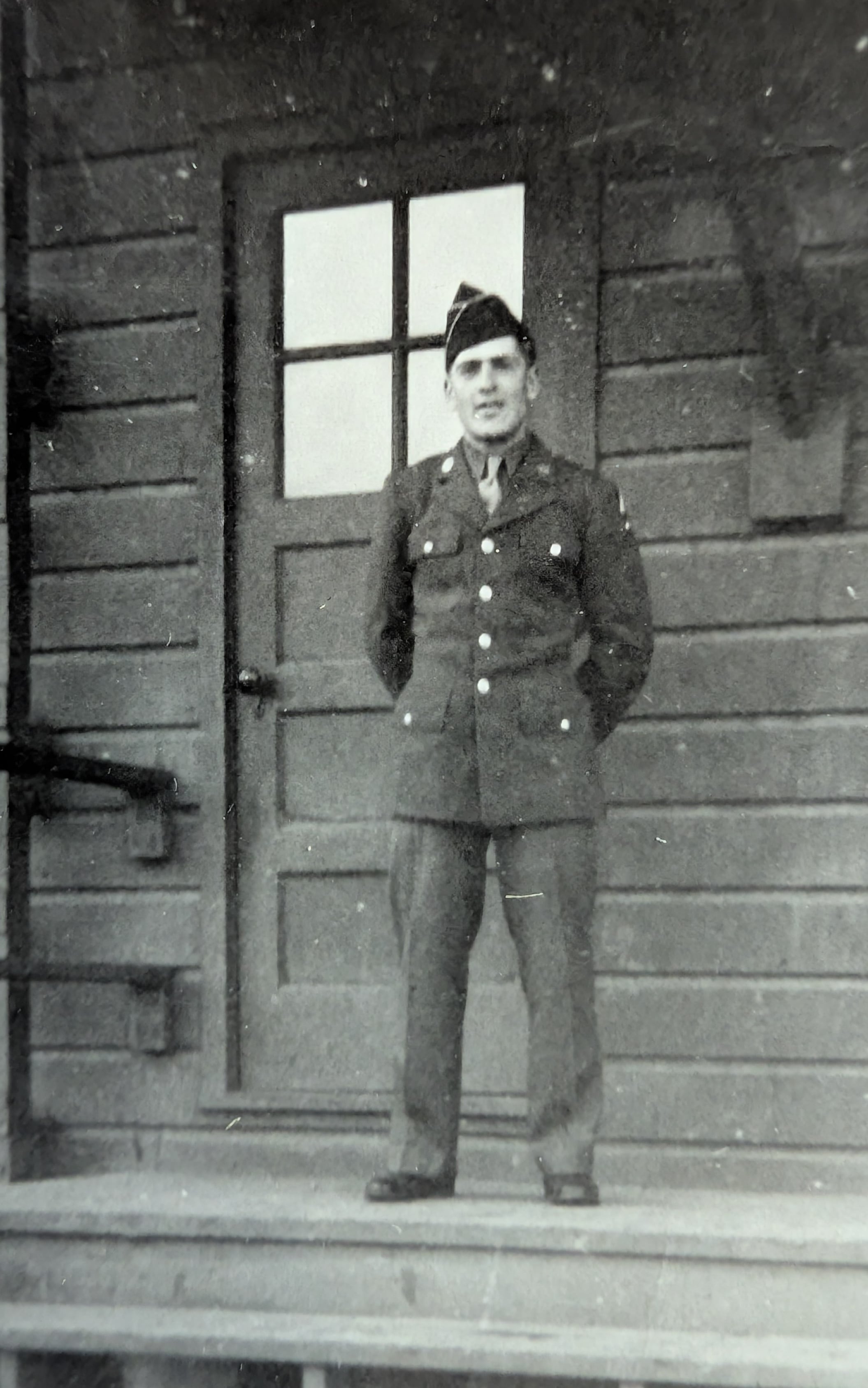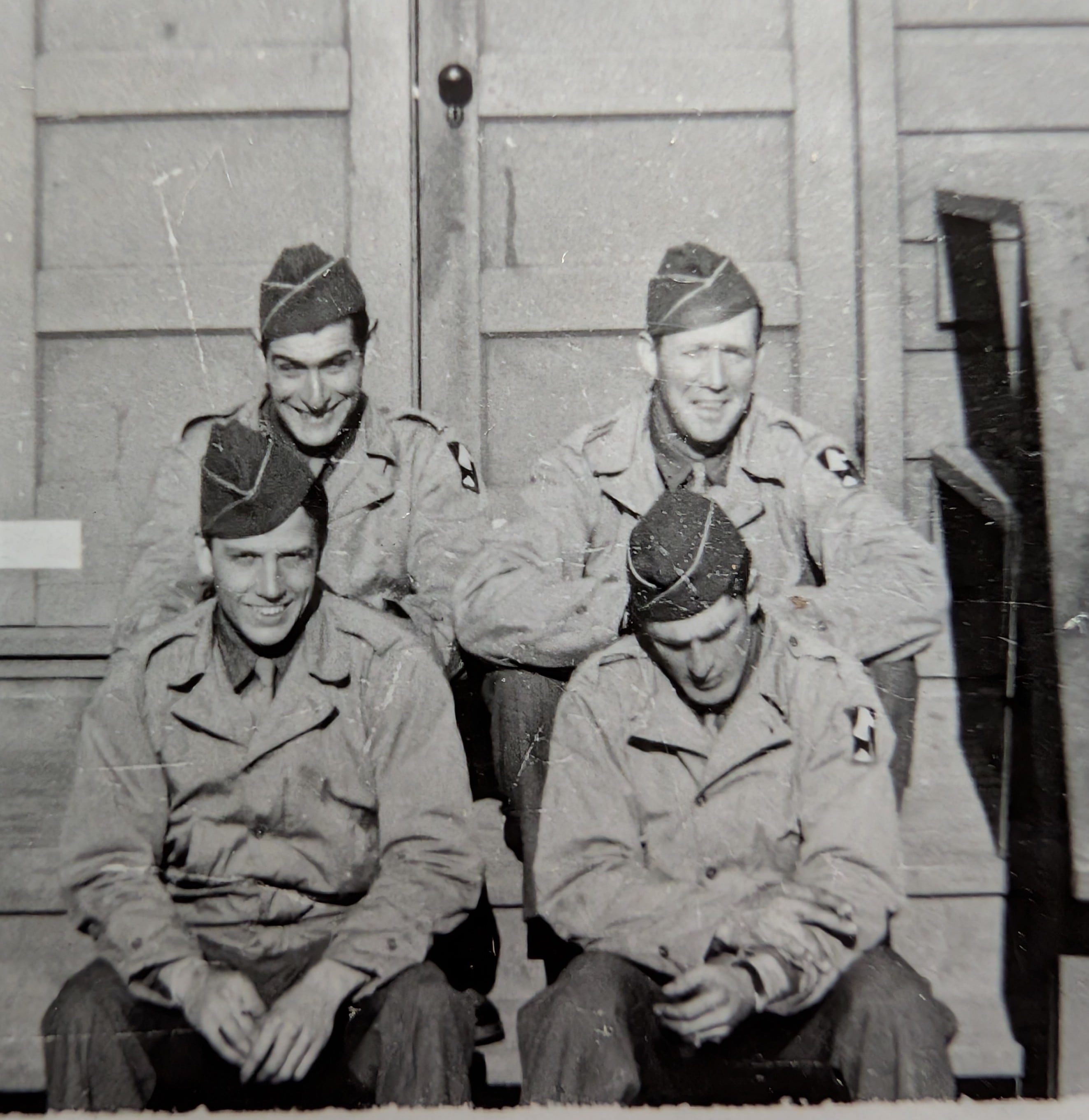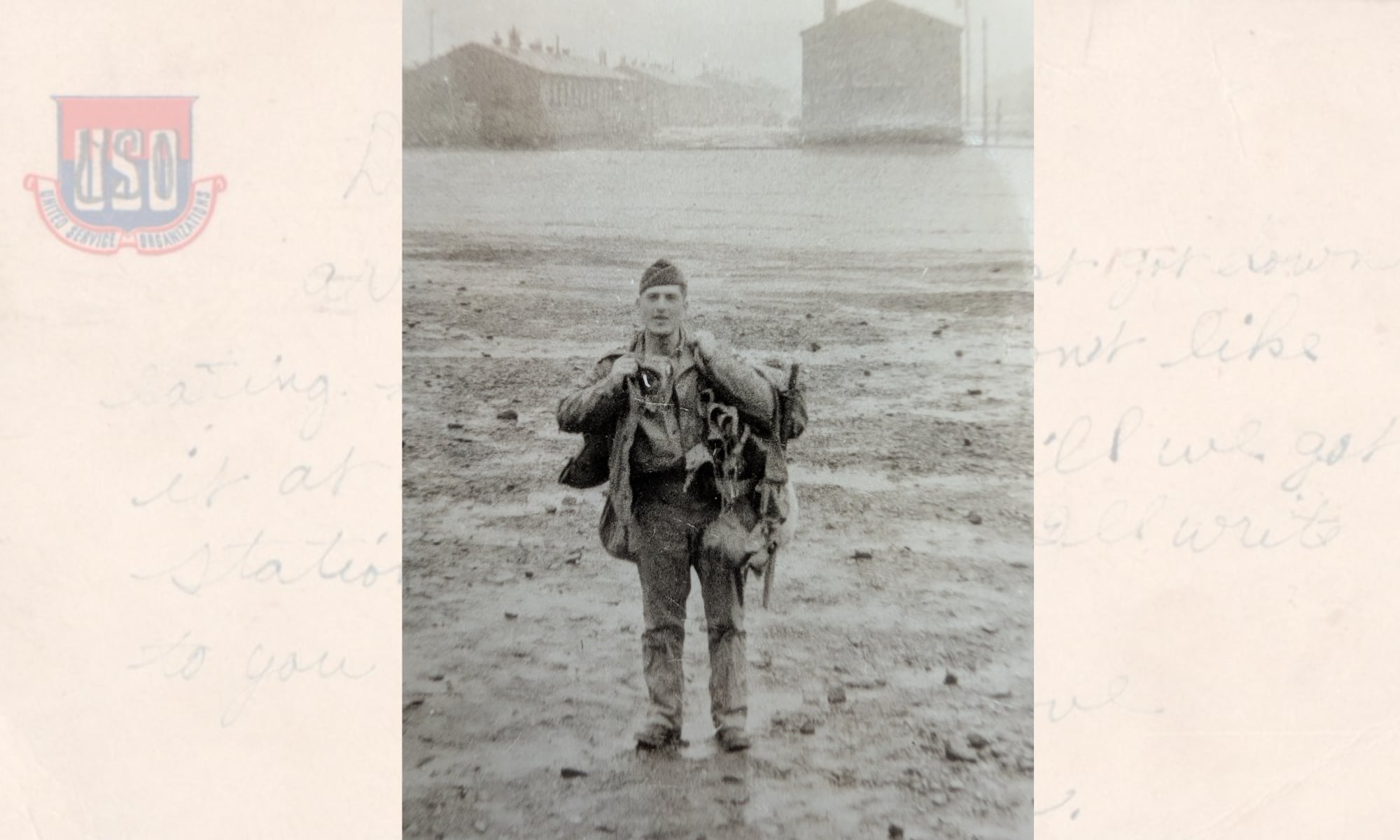“Dear Feloma,
Arrived safely and just got done eating supper. So far, I don’t like it at all.”
And with that letter, dated Aug. 19, 1943, Donald Fiorini’s war began.
Drafted in July of that year, Fiorini was to see and participate in intense combat in the Pacific Theater as a member of C Company, 321st Regiment, 81st Infantry Division. From Camp Adair, Oregon, to Angaur, Peleliu, the Philippines, Leyte Island and finally to the Japanese mainland, the ordinary young soldier from rural Pennsylvania witnessed the carnage of a world at war — and, extraordinarily, he wrote it all down for his wife to read back home.

And there his letters remained, in his wife Feloma’s possession, until both of their deaths in the late 2000s. Tucked away in the couple’s attic were over 500 letters that Fiorini had sent to Feloma, recounting his early, homesick days at basic training to the hellish battles of the Pacific. The letters provide an unvarnished account of the evolution of Fiorini and the war he waged.
Now, Fiorini’s granddaughter, Katie, who is the custodian of his papers, has teamed up with her friend, Carson, to share this personal slice of World War II in a new podcast titled “500 Letters to Nana.”
“My grandpa passed in 2014,” Katie recounted to Military Times in a recent interview. “My mom, my husband, my dad and I were going through the house and we went through the attic and found this trunk suitcase. We opened it up and it’s literally just full of letters, pictures and a scrapbook. My mom asked, ‘Do you want this or should we just chuck it?’ I was like, ‘No, no, no. I want it.”
“I then carried on the tradition by keeping them in a box for another 10 years,” she said, laughing.
In the past year, however, Katie began combing through the ephemera, hoping to scan them so that her mother would have all the letters in one place.
Soon after, Katie began regaling her husband, and then Carson, with some of the tidbits.
“My grandfather was hysterical,” said Katie. “He was so funny. He loved a gag. He loved a practical joke. He was constantly razzing people, in a good way, not in a mean way. In these letters, he’s so funny. He kept that. He truly kept his sense of humor his whole life. … It’s funny to see that parallel — from him in his 20s to him in his 80s.”
It was over a recent birthday dinner that Carson came up with the idea for the podcast.
“We both felt like we had this little special gem,” Carson told Military Times. “And we wanted to move it forward. We wanted to share it.”

And for the hosts, the subject matter — war and separation from a loved one — is something they can both relate to.
“My husband was special forces,” Carson noted. “In 2003, he called one night and he said, ‘Keep the kids up.’ So I kept them up to nine or 9:30, which was a couple hours past their bedtime. When he came home he said, ‘I’m leaving.’ It was like my brain just stopped computing, honestly. He left the next day at 4:30 in the morning. He was the first in Iraq.”
For Katie, some of the Army language struck her.
“Donald writes to Feloma that ‘We went through something called the Infiltration Course today during basic training. I have an actual letter from my husband from basic training saying we went through something called the Infiltration Course today. I read that and thought, ‘It’s exactly the same.’”
The pair plan to release one episode a week, drawing on the shared love story between Donald and Feloma. The letters became a lifeline for the couple, who married in 1940 at the age of 20.
And while few letters remain in Feloma’s voice — “he would hang on to her letters for as long as he could before they would disintegrate,” Katie noted — the hosts want to make sure that Feloma remains centered at the heart of the story.
“We want to pull her into the episodes, because what was she going through? We don’t know, right? We don’t know. Occasionally in a letter, he says something that you know is a response to something she’s written, but she really is the heart of this, because she saved it all. She was so proud of him, and she saved everything. It’s incredible,” said Carson.
But it also follows Fiorini’s evolution from a nervous, homesick grunt to a man who has endured the savageness of war.
“When he’s in training, he’s very silly,” Katie said. “He’s very optimistic and funny and bright, and then after combat, while he’s still very funny and sarcastic … the swearing exponentially increases in the letters. It’s pretty raw, the difference. By the time he makes it to occupied Japan, he is just like, ‘No, I’m not doing any of this.’”
The war impacted Fiorini in other ways as well, however. Namely his palate.
“He never ate coconut again,” quipped Katie.
Stream all four episodes on “500 Letters to Nana” now.
Claire Barrett is an editor and military history correspondent for Military Times. She is also a World War II researcher with an unparalleled affinity for Sir Winston Churchill and Michigan football.





